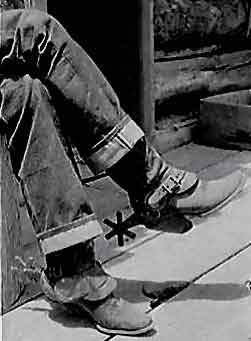The Way West
Are you Motivated?

"This is the sense of Wesen Heidegger has in mind. The 'in' of
Dasein's
being-in-the-world, must be understood from the old High German innan, to dwell
(the
English 'inn' still has that meaning). Dasein inhabits its world. It is not in its
world like a point in a geometrical space. It unfolds (westThe myth of
the American West was created by Theodore Roosevelt, Frederic Remington, and Owen Wister.
Gary Cooper Starred in the film version of Wister's The Virginian.
The macaronic pun is categorial in chora (west in German philosophy
and American mythography). ) in
its world."
Miguel de Beistegui, The New Heidegger.